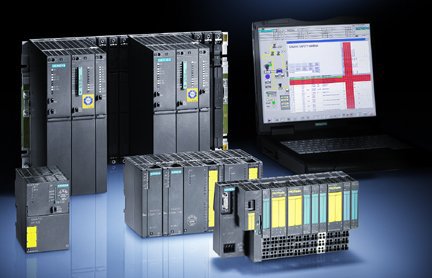
Automation

Time is money - this motto has always been true, and today its importance is even more accentuated. Automation refers to the use of control systems (e.g. controllers, computers, sensors) to control industrial equipment and processes
Our company therefore offers you the possibility to automate your production process - implementing a control system mostly in the form of various Siemens SIMATIC S7 configurations. However, we can certainly cope with the older S5 as well.
Reduction of production lead times. Time is a critical success factor today. Getting a product to market as quickly as possible and being able to fill the market quickly with enough products is more important than ever.
Ability to respond quickly to customer requirements. Reducing lead times and the ability to process orders as quickly as possible is the current market dictate. This includes the ability to react quickly to changes requested by customers and the ability to offer a wide range of product variations. In the past, readiness of supply was achieved by production to stock, which today is not cost effective and often not even possible. The slogan - The right product for the right customer - can be achieved through automation.
Maintaining high production. As the lifetime of a product shortens, it is necessary to try to produce as many products as possible in that shortened time, otherwise the production set-up becomes inefficient.
Reducing production costs
Reductions in production costs are achieved through automation:
better organisation of the production process
material savings
savings in storage and production areas
by reducing the cost of low-quality production
energy savings of all kinds due to their precise metering and optimal regulation
Increasing the stability of the production process. Stability of the production process is necessary for the ability to meet agreed deadlines and costs. It is also one of the conditions for optimizing the production process. Automation achieves it by quickly identifying all important conditions, monitoring significant trends, automatically identifying products, workers and other factors in the production process.
Optimization of the production process. Automation enables fast and accurate measurement, evaluation of the detected values and implementation of the necessary intervention in real time. In doing so, it is possible to achieve optimum costs, optimum timing, optimum use of raw materials and other available resources.
Providing fast and accurate information on the status and progress of the entire production process.
As the complexity of today's manufacturing technologies increases, so do the requirements for their management, which cannot be imagined without the necessary information security. Today, accurate, fast and relevant information is essential for management. Automation makes it possible to obtain this information and distribute it to the necessary control points in the company, not only in alphanumeric form, but also in audio and visual form (visualisation of processes by multimedia computer means)